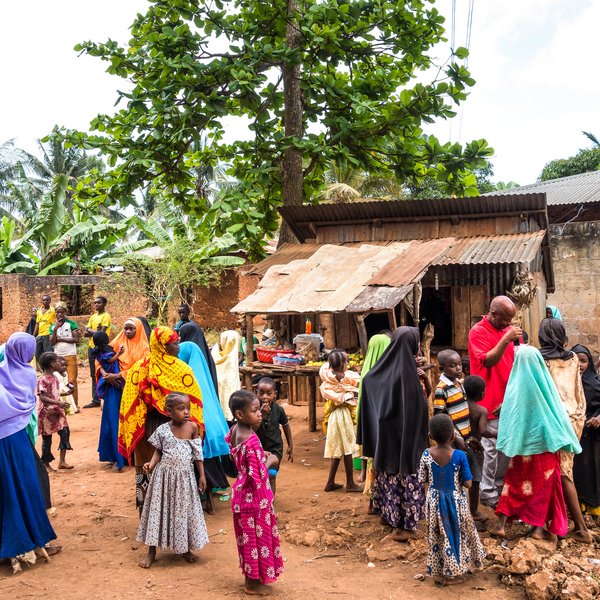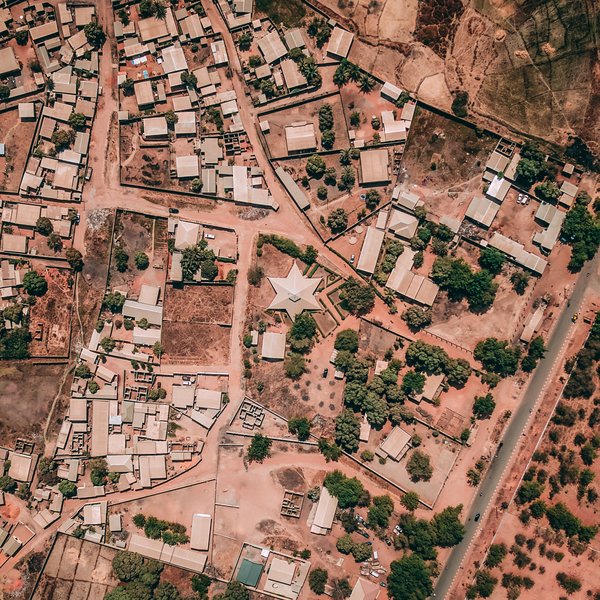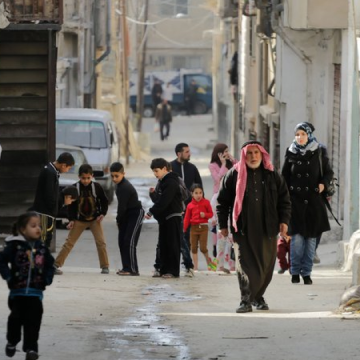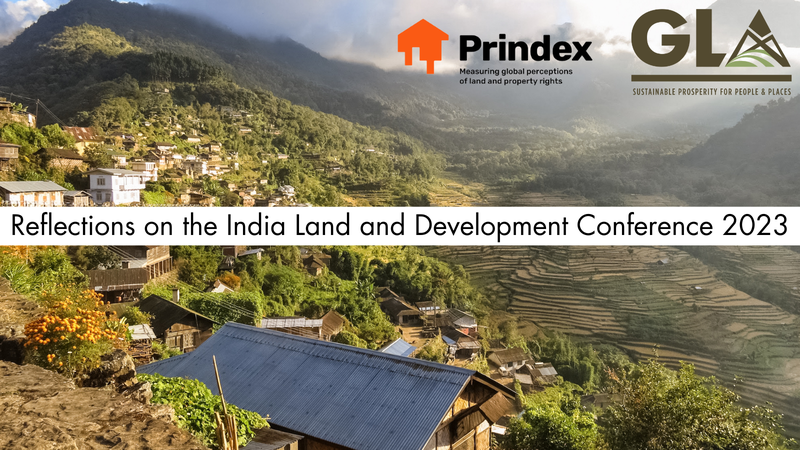
Last week, Prindex Co-Director Anna Locke attended the India Land and Development Conference 2023: Land - People Relations: Diversity and Transitions, cosponsored by Global Land Alliance. She reflects on the conference, people she met, and the future of land governance in India. Special thanks to the Center for Land Governance and Pranab Choudhury for convening an important space for dialogue and collaboration.
Aligning India’s Net Zero Ambitions with Land Rights
Greetings from Pune in India on the first day of the 7th India Land and Development Conference, where 250 people have gathered to talk about the diversity of land and people in India and the transitions that both are going through, particularly in the face of climate change.
I first visited India 30 years ago. This – only my second visit to India – has shown me a country that is unrecognizable in many aspects, although the chaotic traffic with liberal use of horns is all too familiar. The strength of ambition is palpable – in India’s aim to achieve developed country status by 2047, become the world’s third largest economy and reach net zero by 2070, meeting 50% of its electricity requirements from renewable energy by 2030. The latter could require India installing more than 84 times its current solar capacity and 42 times its current wind capacity.
This ambition requires high levels of sustained annual economic growth and a rapid reconfiguration of India’s energy production system. It also relies on using large areas of land to provide food, urban shelter and renewable energy in the form of solar and wind power farms. India is estimated to require a total area of between 65,000 km2 and 95,000 km2 by 2050 for solar panels and wind turbines and their buffer zones – nearly 3% of India’s total land area.
A popular planned destination for such installations are so-called “wastelands” viewed by government as unproductive and unused. However, this view is contested, as a healthy discussion among conference participants demonstrated today. Such land is often used by groups who claim user rights or ownership, using it to graze their livestock; and paradoxically, these open natural ecosystems can often also be important carbon sinks.
Squaring the circle of competing land use will demand clear land rights and robust planning systems, and a process to achieve both very quickly, as underscored by the World Bank’s Land Lead, Mika Torhonen, in his keynote speech at the conference. This will rely on using technology and innovation, such as digitising India’s Land Records. But it will also require care and respect of people’s land and property rights – especially those who have little power to protect what few rights they already have. One tool to help could be the SiteRight tool which aims to identify areas where “solar and wind development is less likely to encounter socio-ecological conflicts”.
In the end, as some businesses and governments know from bitter experience, nothing beats sitting down and talking to the people who will be affected by a renewable energy investment to understand how to invest in a way that respects rights and provides genuine, long-lasting benefits to those whose land will be used. Neglecting this could derail India's ambitions to the detriment of its citizens and the world.
WOMEN’S LAND AND PROPERTY RIGHTS IN INDIA – CHALLENGES AND INSPIRATIONS
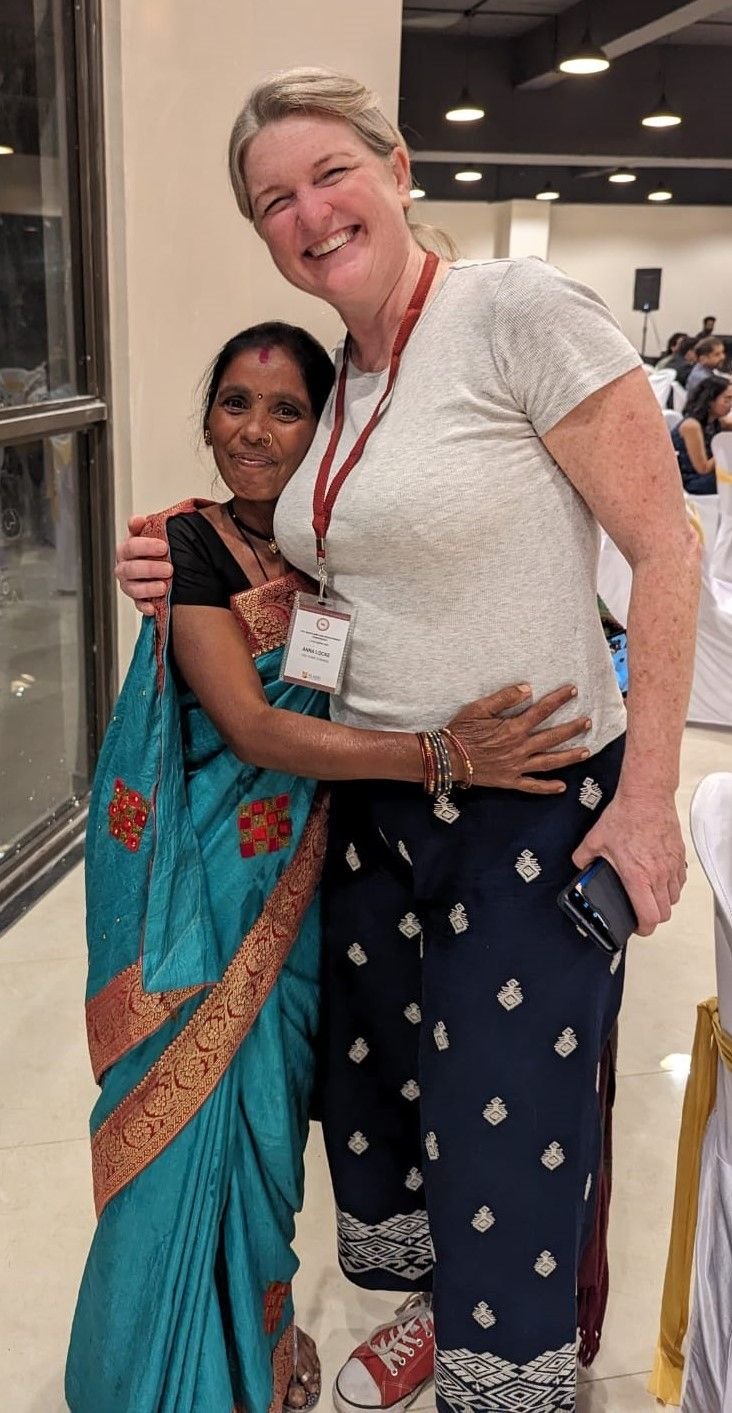
Greetings again from Pune! I couldn’t sign off from the three-day India Land and Development Conference without talking about my inspiration for this week – a tiny and determined woman from a marginalised group of “Other Backward Caste” in India called Savati Bai who did a keynote speech at the inauguration of the Conference.
Savati’s life has been transformed by getting a joint land title with her husband. On stage, Savati shared the harrowing account of her previous life as an informal labourer, suffering domestic abuse at the hands of her alcoholic husband whose drinking habits soaked up all the money she earned working at a brick kiln. Two years later, she is a farmer with title to land which she uses to grow rice and millet, with control over the money earned from those crops to invest in her family’s living conditions and future. And a sense of dignity and agency to boot.
Three things were key to Savati’s transformation:
- Support from local organisations (Lok Astha and Sakhivan staff center) to break the cycle of domestic abuse by threatening legal action against her husband, freeing Savati from the fear of being in her own home or of making her voice heard in household decisions.
- Gaining title of land that had been in the family for three generations in order to get access to agricultural benefit schemes and other finance to kick-start cultivation. Importantly, the title was issued in Savati’s name, as well as her husband’s.
- And finally, Savati’s strength of character and purpose in the face of repeated obstacles to getting her title, navigating Indian bureaucracy using all means at hand and drawing on support from Lok Astha.
And she is using that experience to help others, investing back into the self-help support group that assisted her, and channeling her energy and knowledge at district level to help other women get titles in their names.
Savati’s story sits alongside other women’s tales of still struggling to have a voice, decision-making power or safety in their own homes. Providing such women with access to land – with full rights – can allow them to have a greater say within their homes and communities. Ensuring that girls can stay in school and have a decent education can help them understand and exert their land rights as adults. Giving women access to finance can help them achieve economic independence and greater bargaining power.
There is still a long way to go to achieve full empowerment and emancipation for all women around the world. But chock-full of grit and fighting for those women, Savati is my inspiration when that goal can still feel far off.
#ILDC2023 Center for Land Governance #womenslandrights #SavatiBai Pranab Choudhury
